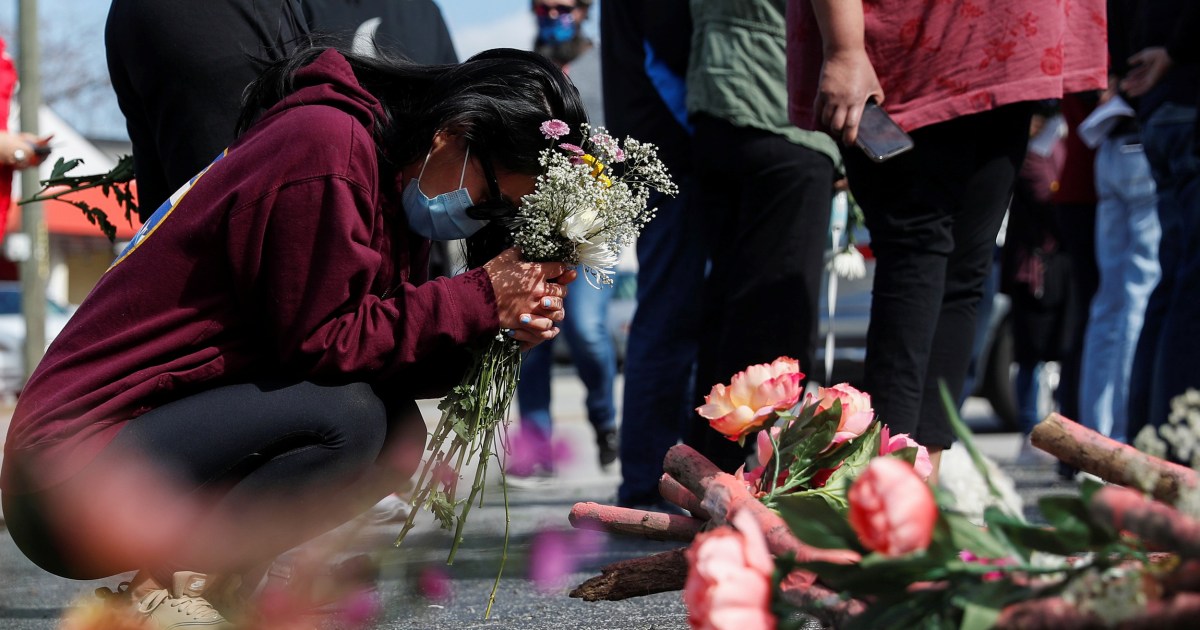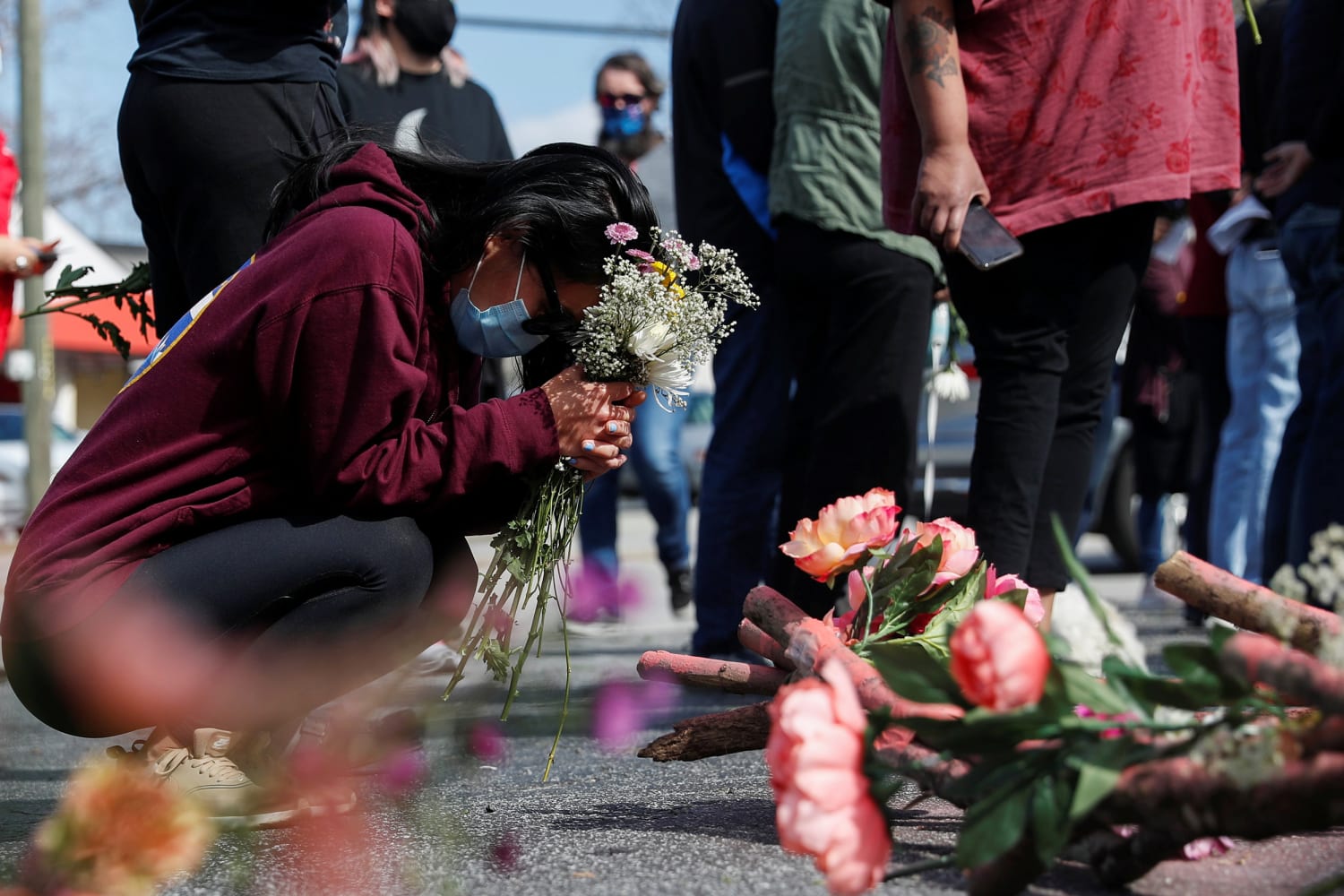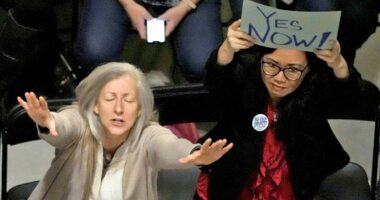
The shootings in Boulder, Colorado, and the Atlanta-area last month that left 18 people dead has reignited the political exchange around gun control.
But that discussion shouldn’t overshadow the stark contrast in the political response to the two attacks or in the news media coverage.
After the shooting in Boulder on March 22, in which an assault rifle was used, President Joe Biden called on Congress to take action to ban them and close background check loopholes. Lawmakers jumped in with official statements and media appearances denouncing gun violence.
The week before, however, after the shootings in the Atlanta area on March 16, where six of the eight victims were Asian women, there were critical discussions on hate crimes, racism and misogyny — and almost none on guns and gun control.
Gun control advocates point out that the racial disparities in the two shootings — all of the Boulder victims were white — likely played a role in the difference in reaction.
“What we’re seeing now is no different from, frankly, what we see every day,” Greg Jackson Jr., national advocacy director of the Community Justice Action Fund said. “When minorities are being impacted by gun violence, it’s purely looked at as a crime challenge, a hate challenge, but not necessarily as the public health crisis that it is and the response that’s required to address this as a crisis and not an individual impact or individual incident.”
“When there is a mass tragedy, there is always a policy response. When there’s violence that happens in our communities, the response is, ‘What did those people do, why were they there?’ Like last week, people initially said, ‘Why were those women there?’ It doesn’t matter why they were there, it doesn’t matter what the occupation was,” Community Justice Action Fund founder Amber Goodwin said.
Addressing the overlap in both gun violence and targeted hatred toward specific groups is the Community Justice Action Fund’s mission. It was founded by Amber Goodwin, a political organizer formerly with Gabby Giffords’ gun control group, in the aftermath of the mass shooting at a Black church in Charleston, South Carolina, in 2015. Goodwin said she made a point to build a gun control organization that intersected the issues of gun policy with issues of gender-based violence and racism.
The work in the gun control movement can’t just be focused on the Second Amendment, she said. Giving the identities of the victims in the Atlanta shootings, the conversation cannot just be about gun violence, or just about sexism and racism, she said.
“It has been a consistent struggle to make sure that we’re not just talking about these buckets of violence that don’t include thinking about this from a gender justice issue as well,” Goodwin said.
The lack of conversation on guns after the Atlanta shootings came as a surprise to David Inoue, executive director of the Japanese American Citizens League.
“Why is there this lack of coverage about the fact that this was a mass shooting? And whenever there’s a mass shooting that’s always one of the first thing that’s talked about,” he said.
That the suspect bought the handgun used in the shooting hours before the attacks adds to the question of why gun reform wasn’t an immediate part of the conversation. Actions like imposing a one-week waiting period, Inoue says, may have helped prevent the shootings.
“When you hear the police give the narrative that this guy had a bad day, maybe if he had to wait a week that bad day would have not turned out the way that it did,” Inoue said. “He would have had to wait a week, he would have cooled off. And this is a perfect example of where common-sense gun control might have actually made a difference.”
But Goodwin says the response to the Atlanta shootings, specifically the lack of policy response, is typical for when communities of color are targeted by gun violence.
“When there is a mass tragedy, there is always a policy response. When there’s violence that happens in our communities, the response is, ‘What did those people do, why were they there?’ Like last week, people initially said, ‘Why were those women there?’ It doesn’t matter why they were there, it doesn’t matter what the occupation was,” Goodwin said.
“Why is the response when it comes to communities of color always a response about putting it back on the people who were impacted to figure out the problem?” she said. “Why are we not humanized?”
Source: | This article originally belongs to Nbcnews.com










